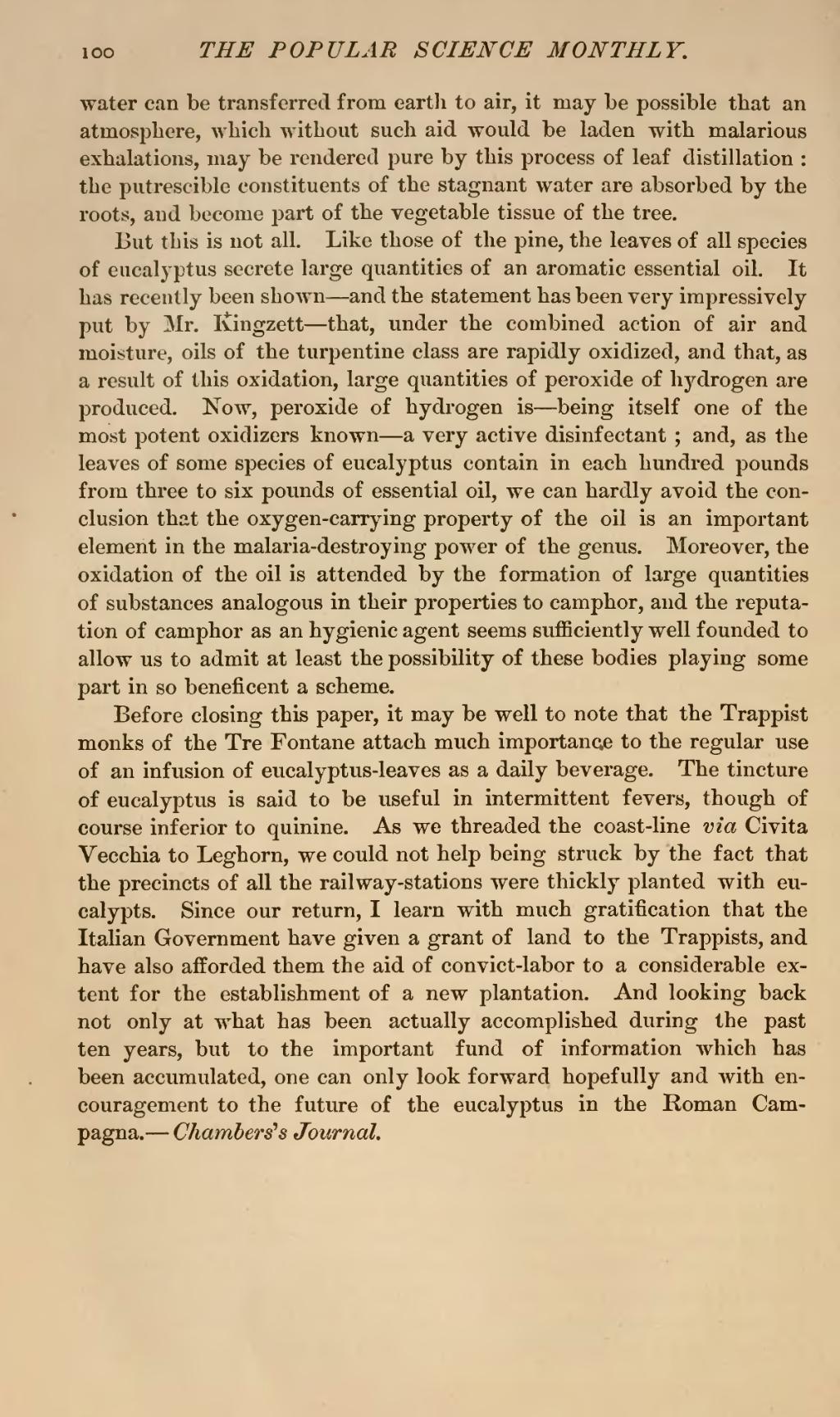water can be transferred from earth to air, it may be possible that an atmosphere, which without such aid would be laden with malarious exhalations, may be rendered pure by this process of leaf distillation: the putrescible constituents of the stagnant water are absorbed by the roots, and become part of the vegetable tissue of the tree.
But this is not all. Like those of the pine, the leaves of all species of eucalyptus secrete large quantities of an aromatic essential oil. It has recently been shown—and the statement has been very impressively put by Mr. Kingzett—that, under the combined action of air and moisture, oils of the turpentine class are rapidly oxidized, and that, as a result of this oxidation, large quantities of peroxide of hydrogen are produced. Now, peroxide of hydrogen is—being itself one of the most potent oxidizers known—a very active disinfectant; and, as the leaves of some species of eucalyptus contain in each hundred pounds from three to six pounds of essential oil, we can hardly avoid the conclusion that the oxygen-carrying property of the oil is an important element in the malaria-destroying power of the genus. Moreover, the oxidation of the oil is attended by the formation of large quantities of substances analogous in their properties to camphor, and the reputation of camphor as an hygienic agent seems sufficiently well founded to allow us to admit at least the possibility of these bodies playing some part in so beneficent a scheme.
Before closing this paper, it may be well to note that the Trappist monks of the Tre Fontane attach much importance to the regular use of an infusion of eucalyptus-leaves as a daily beverage. The tincture of eucalyptus is said to be useful in intermittent fevers, though of course inferior to quinine. As we threaded the coast-line via Civita Vecchia to Leghorn, we could not help being struck by the fact that the precincts of all the railway-stations were thickly planted with eucalypts. Since our return, I learn with much gratification that the Italian Government have given a grant of land to the Trappists, and have also afforded them the aid of convict-labor to a considerable extent for the establishment of a new plantation. And looking back not only at what has been actually accomplished during the past ten years, but to the important fund of information which has been accumulated, one can only look forward hopefully and with encouragement to the future of the eucalyptus in the Roman Campagna.—Chambers's Journal.

